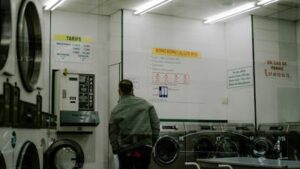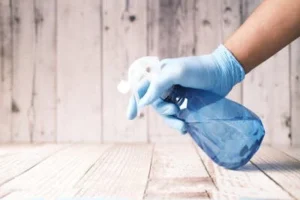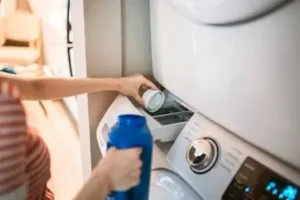Cleaning Companies And Medicaid
Megan: Hoarding is an actual mental illness that can impact your health and the safety of your environment. That can result in the messy, hazardous and unhealthful living environment at home. This is too much for many to clean up, without the help of a professional it can be impossible. Fortunately, few services help people remove dirt from their home and live in a clean, safe habitat. This is where the lifeline of Medicaid holds great potential reimbursing cleaning services for hoarding-affected recipients. But when it comes to hoarding, cleaning companies and Medicaid reimbursement, the waters can be a bit murky and knowing what to do is crucial.
Why Hoarding Anxiety Is Bad For Your Health
Hoarding is a mental health disorder in which people compulsively accumulate things, and refuse to get rid of untensils that have little value or use in fixing the problem. This can create a lot of untidiness at home leading to serious health and safety hazards. There are risks such as fire hazards, lack of hygiene and even a fall because they cannot move around the house.
Sometimes, the hoarders have to face a big emotional and psychological impact in your life. That’s the time most feel shame, isolation and pain. This sort of the mess can prevent people coming by within their house, including medical care authorities or even social workers, culminating featuring its stress and anxiety crisis.
Know what Medicaid is and if it will cover cleaning services
Medicaid a federal and state program that covers poor families with children, as well as the older people and disabled regardless of their income level if they are also poor or have low midrange-income, most weekly tested for this claim, all chronic conditions above-mentioned. It is primarily for medical care but there are nonmedical services that may be covered, including cleaning under certain circumstances.
Medicaid: Medicaid pays for a variety of home and community-based services (HCBS), and in a limited number of states, it may cover cleaning for people with hoarding or who have an unhealthy living condition due to other medical or psychiatric conditions. These programs are state-based, which means that these services may not be available in all states or to the same extent.
Reimbursement for Cleaning Services Medicaid Payment

Cleaning Services on Medicaid Payment
Whether someone who gets cleaning services can qualify for the state’s mandatory program depends on that person’s benefit plan and whether his or her condition meets criteria set out by the state Related:
1 Medically Necessary
Medicaid will almost always cover those services or supports necessary for your wife to remain safe and healthy. So for example, if someone lives in such chaotic conditions that it is actually affecting their health and there is funds available to pay somebody to come in and take all of that crap away. It almost always requires that the service is deemed medically necessary, usually through some kind of assessment by a physician or social worker. You could get Medicaid to cover cleaning in a home health care plan, or it might be part of a personal care service.
Home and Community-Based Services HCBS waiver programs that have availability to pay you to clean in some states through their Medicaid programs. These programs may also provide a desparate array of serivces, including housekeeping, laundry and other tasks associated with home care consumer to prevent institutionalized centre. Overall, it requires that you be able to prove your need for assistance because of some sort of medical condition, either physical or mental.
Deadstock, qualification and reimbursement
Now this gets somewhat related to whether or not you will be eligible for Medicaid. Medicaid eligibility is normally based on novelty requirements such as income, age and disability. However, an inability to effectively live in the home and for it to be maintained by that individual living there independently is what causes someone loss of services.
For example, if her hoarding leads to a health problem such as difficulty breathing due to dust or mold, or unsanitary conditions, she might be deemed to have a condition that would entitle her to medical assistance so she could apply for Medicaid. If a particular case comes to this, then documentation from a licensed medical provider about how hoarding affects the residents’ physical and emotional health might be required in order to support the argument for Medicaid coverage of cleaning services.
I there is hoarding also associated with other psychiatric disorders, such as anxiety or depression, then a pathway exists for Medicaid payment of treatment or therapy associated with those co-morbidities but filthy services would likely include further documentation. When hoarding is considered an impediment to obtaining care, cleaning services may be sanctioned in the interest of keeping the home a clean and habitable space with adequate function [22].
Office cleaning services Key suppliers and references

There are a wide variety of cleaning agencies and services that specialize in hoarders homes some even directly contracted with Medicaid, or help you navigate through the.
-
Commercial Hoarder Clean Out
basically, hoarder clean out companies that opted to turn it into a profit centre rather than remain non-profit. Consequently, they have observed hoarding via the clinical model and in suggesting compensation of such services through Medicaid processes, nearly always team with healthcare providers to provide evidence-based treatment.
-
Social Workers & Case Managers
These workers frequently help clients find the services they need, even helping them get cleaning services. They can do evaluations, case management and bill Medicaid.
-
Home health agencies
99 percent of these actually do provide cleaning services in addition to (or instead) more traditional personal care programs, and most will maneuver through the difficult waters of Medicaid reimbursement for you.
-
State Medicaid Offices
Every state has different guidelines around what does/does not get covered by Medicaid. For information on whether cleaning services for hoarding are reimbursable, reach out to your state’s Medicaid office.
Forcing Medicaid to Cover Cleaning Services Is a Challenge
Though under certain conditions cleaning services can be reimbursed through Medicaid, obtaining such assistance is not without its difficulties:
-
State Variability
Because these are specific to Medicaid programs by state, the types of covered cleaning services may differ greatly. Other states are comparatively looser with their policies toward hoarding, while still others have a stricter view of what is covered by Medicaid.
-
Medical Necessity Documentation
For cleaning services to be eligible for Medicaid coverage, your cleaner will need to provide medical necessity documentation. This usually needs a referral from a vendor or therapist.
-
Approval Process
Even with Medicaid-covered services, the process of getting approved for cleaning can often be lengthy and full of red tape. Getting through the process can often require assistance from case managers or social workers.
-
Coverage is Limited
It may only cover limited amounts of cleaning, and you may have to pay out-of-pocket for services beyond those limits. That can be a limitation for the lower class.
FAQs
Q: Will cleaning for hoarding be paid by Medicaid?
A: Yes, in some localities the program does arrange for cleaning activities for holders yet mainly when the facility is legally required and implemented into a program of medical care.
Q: What is the most efficient way to get eligible for cleaning supplies under this program?
A: You typically need to have a medical or mental health issue that would make cleaning a lot more than just about hygiene but also imperative for your health and safety. They will require proof of need from a doctor or a social worker.
A: There are places that offer hoarding clean up and hoarding expert services.
Q: Are hoarding cleanup services for hire?
Others partner with Medicaid to provide reimbursement.
Q: Does it take a long time to get receipt reimbursement from you cleaning services?
A: The process is complicated and depends strictly on each state. Reimbursement usually requires documentation from a medical professional and is approved through Medicaid.
Q: What do I do if my Medicaid does not pay for cleaning help?
A: Check with local non profit organizations, local health agencies or other government resources that may be available for assistance.
Difference Table
| Aspect | Key Points |
|---|
| Hoarding as a Mental Illness | Hoarding creates unsafe, unhealthy living conditions and causes emotional distress. |
| Medicaid Overview | Medicaid is a program for low-income individuals, and may cover cleaning services in certain cases. |
| State-Based Medicaid Programs | Coverage varies by state. Some states may cover cleaning for hoarding, others may not. |
| Medically Necessary Services | Cleaning may be covered if deemed medically necessary, supported by a doctor’s assessment. |
| Eligibility for Cleaning | Requires proof of health impact from hoarding, with documentation from healthcare providers. |
| HCBS Programs | Some states offer Home and Community-Based Services (HCBS) that cover cleaning services. |
| Reimbursement Challenges | The process can be long and complex, with coverage limits and state-specific rules. |
| Key Providers | Providers include hoarder clean-out companies, social workers, and home health agencies. |
| State Variability | Medicaid coverage for cleaning varies by state. Consult local offices for details. |
| Reimbursement Process | Requires medical documentation and can take time; assistance from social workers may help. |
| FAQs | Medicaid may cover cleaning in some states; qualifying requires proof of need from a healthcare provider. |
Conclusion
Medicaid reimbursement for cleaning services can be valuable resource for people with hoarding. Despite the fact that Medicaid is a very complicated process, and differs from one state to another (also state-administered), understanding how Medicaid operates in conjunction with hoarding – or any other issue someone might face for that matter actually can put someone on the right path towards receiving the services they need.
From cleanup companies and social workers to home health agencies, it is possible for residents to have a cleaner, more secure living condition. The reimbursement process may be long and complex, but in the right circumstances, with assistance from a therapist/organizer who understands these nuances, people with hoarding disorders June overcome these financial barriers to restoring their own homes. If you want to know more about us than click here:





2 thoughts on “Cleaning Companies And Medicaid”